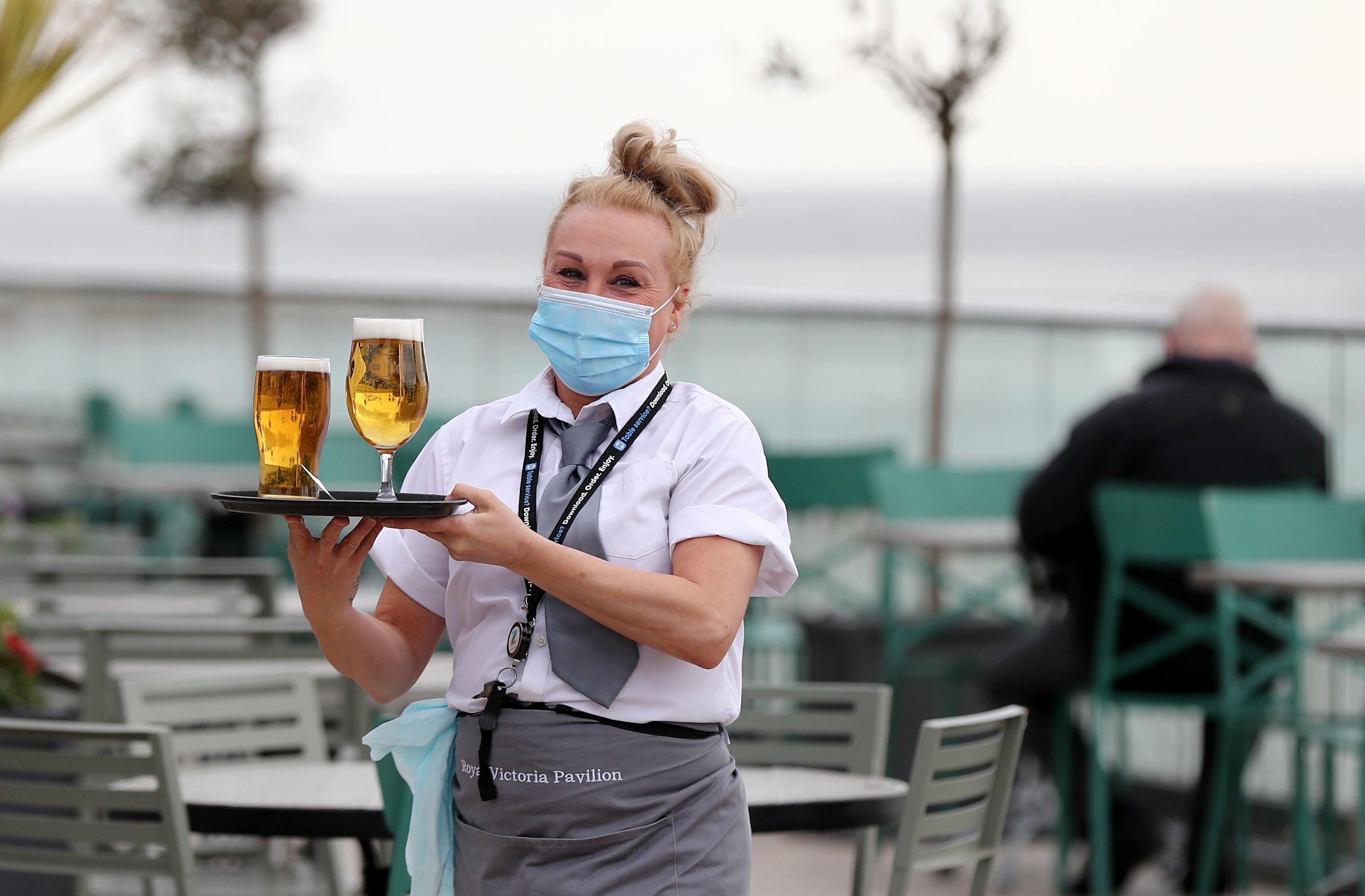People are now moving faster than governments over Covid rules – for hospitality, this is a disaster
What governments mandate is important, but what people actually choose to do is more so when it comes to the future direction of the pandemic, says Hamish McRae


Cancel culture has taken on a new meaning for the supposedly festive season, with swathes of events being cancelled and all the disruption and misery we have come to know so well. The UK has become a test bed for how to respond (or perhaps not to respond) to the omicron variant, as a result of it reaching the UK a week or so ahead of most other developed nations.
We will learn more about omicron in the next few days. As well as the push for vaccine booster shots, there will presumably be more restrictions in the various parts of the UK, and Scotland is already moving in that direction. Behaviour is already changing, however. People are moving faster than governments. For the hospitality industry this is a disaster – all those cancelled office parties. It is another huge blow to the airlines. France, which was moved to the highest travel risk category by the US Centres for Disease Control and Prevention last week, may tighten its controls further. Not much point in booking a skiing holiday if you are worried you might not get there – better to put it off till the clouds lift.
People everywhere respond differently to new threats. The young are different from the old. East and west Germany have shown huge variations in vaccine take-up. New York is very different from Florida. The US is seeing a particularly sharp increase in cases in Washington State, and California and New York have brought back requirements to wear masks indoors. The US as a whole seems to be taking a more relaxed attitude to omicron than the UK, certainly at an official level, but anecdotally at a personal level too.
Or at least that is the way it seems now. The interesting thing everywhere will be to see to what extent behaviour changes, rather than how regulations change. What governments mandate is important; what people actually choose to do more so.
The UK’s experience over the past few days is an example of that. The guidance last week was that people who could do so should work from home, but that the office parties could continue. What has happened is that more people are indeed working from home, as the famous Pret Index shows. Coffee and sandwich sales at Pret a Manger outlets in central London did decline a bit last week, while those in the suburbs rose. Commuter traffic was down too. That you would expect, but what was striking was that the cutbacks started before the new guidance came into force. Even more notable was the near universal cancelling of office parties, it seems because many managers did not want to take responsibility for people catching Covid at them. Given the news about hospitals gearing up for a massive influx of Covid cases, you can understand why.
To keep up to speed with all the latest opinions and comment sign up to our free weekly Voices newsletter by clicking here
This gives a pointer to the future. If, as seems likely, there will be some months, maybe years, before the virus is contained, our behaviour will adapt to that. Employers will establish requirements to protect their workers and customers, with health and welfare becoming an add-on to the environmental, social and governance issues they increasingly must take into account now. Employees will want to be confident that working conditions will minimise health hazards. Government will not have to keep making (and then changing) the rules, and threatening fines and jail if people break them. Instead our societies will evolve to take into account this new health threat, just as they have evolved in the past to other new circumstances.
The hospitality industry finds itself in the front line now, and it is very rough that business is slipping away without it receiving any government support. But it has been most resilient over the past two years, and if what customers want changes, then it will adapt what it offers to those different demands.
Perhaps the best way to think about what is happening now is to see it as a period of transition. Yes, we are still to some extent in the business of lockdowns and masks, and social distancing and all that. But personal choice has become much more important. We are becoming more careful because that is the sensible thing to do, not because some politician (whom we don’t trust anyway) says we ought to.
Join our commenting forum
Join thought-provoking conversations, follow other Independent readers and see their replies
Comments
Bookmark popover
Removed from bookmarks